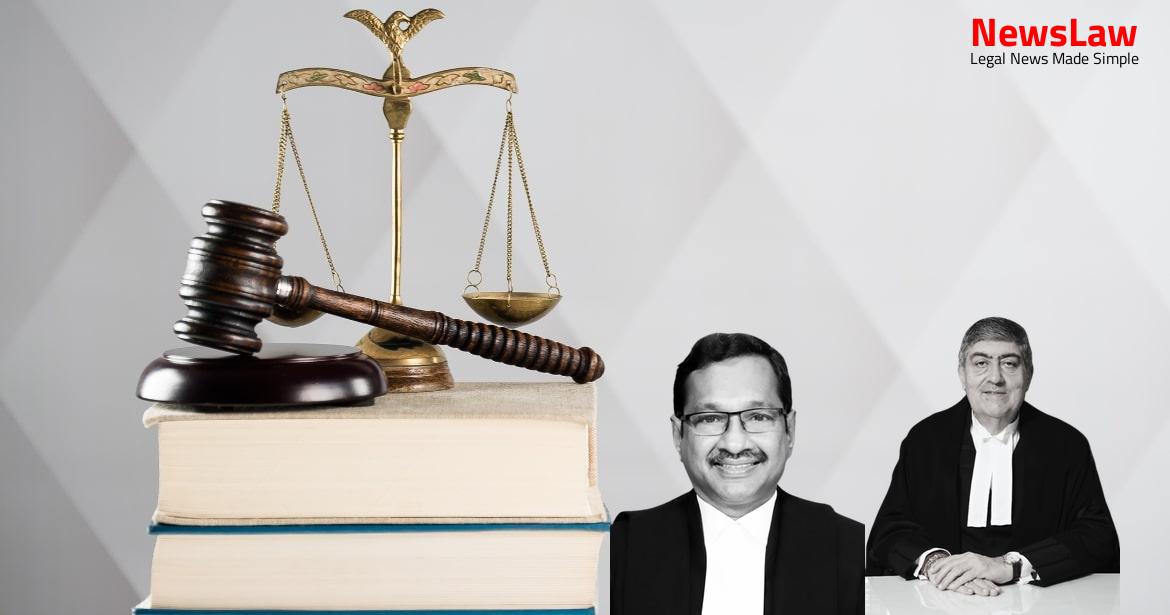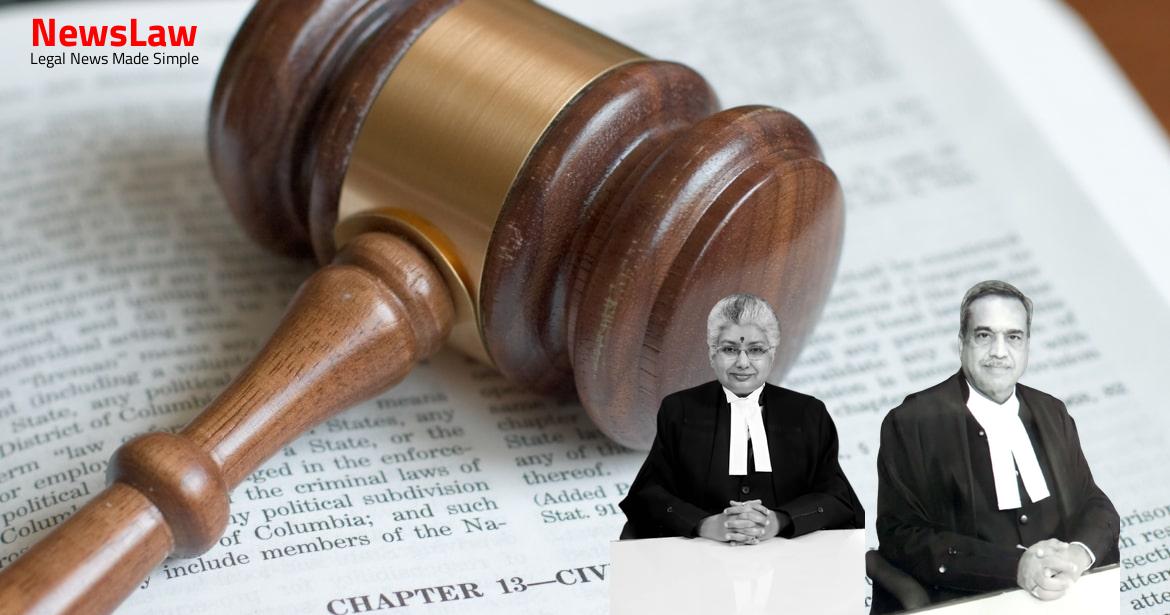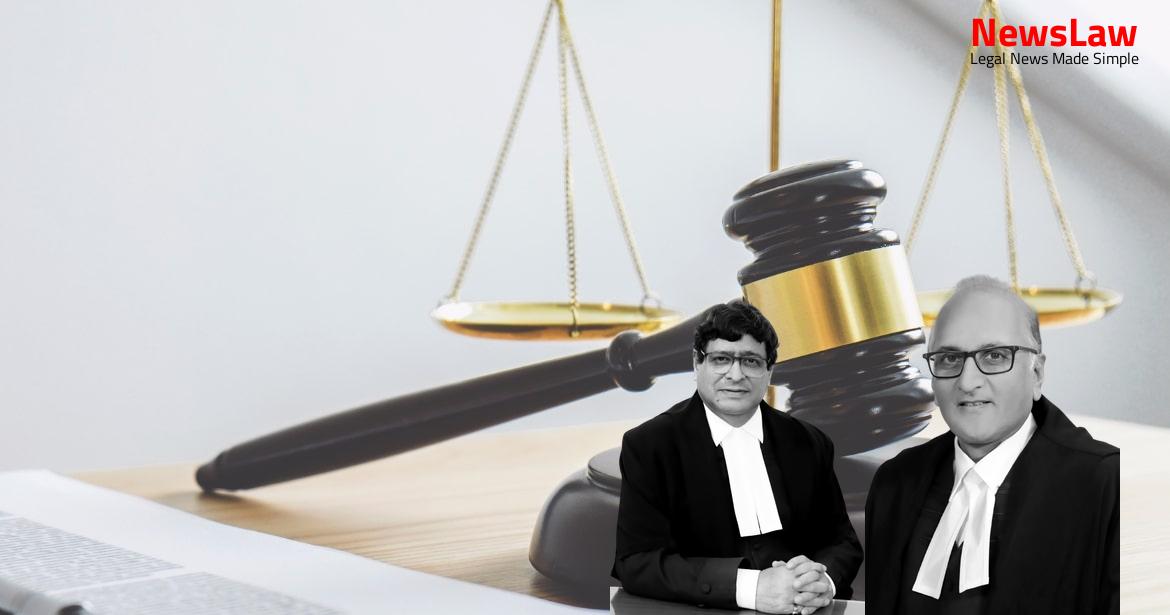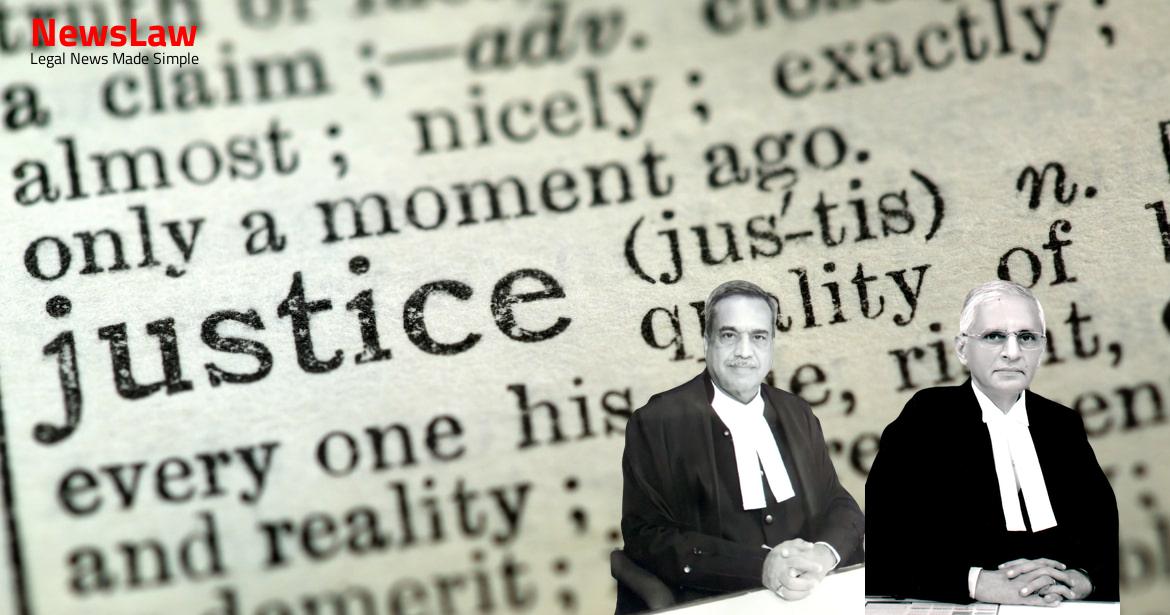The case delves into the critical examination of Rules 3 and 3A of the Kerala Service Rules concerning the release of Death-cum-Retirement Gratuity (DCRG) for employees convicted in criminal cases. The focus lies on the interpretation and application of these rules by the Court, shedding light on the complexities of entitlement to DCRG post-conviction. Stay tuned for a deeper insight into the legal framework governing such matters.
Facts
- K. Chandran was convicted and sentenced to undergo RI for 2 years and pay a fine in a criminal case.
- He appealed the decision in the High Court of Kerala and the sentence was suspended.
- An application was filed before the Kerala Administrative Tribunal seeking release of DCRG, but it was dismissed due to the conviction.
- The issue revolved around the interpretation of Rule 3A of the Kerala Service Rules regarding the release of DCRG.
- The Tribunal concluded that a convict like K. Chandran, especially for a bribery offense, could not claim entitlement to DCRG.
- D. Alexander, another respondent, was convicted in a separate case and sentenced to RI for 2 years and a fine.
- An appeal was filed and the judgment was in favor of the respondent-employees.
- The Financial Advisor Controller did not provide the DCRG to K. Chandran and D. Alexander, despite their requests.
- The non-issuance of DCRG was challenged by D. Alexander through O.A. No. 300 of 2015 filed before the KAT.
- The FAC’s failure to release the DCRG to the concerned individuals was a key issue in the case.
- Both K. Chandran and D. Alexander sought relief through legal avenues due to the non-issuance of their DCRG.
Also Read: Supreme Court Judgment on Single Till Mechanism for HRAB Calculation: A Comprehensive Analysis
Issue
- The issue at hand is whether an employee convicted in a criminal case for violation of integrity norms in the performance of official duties, with an appeal pending before the High Court, is entitled to the release of his Death-cum-Retirement Gratuity (DCRG).
Arguments
- The State of Kerala argued that there cannot be any proceedings continued against a Government servant after retirement as the employer-employee relationship does not subsist.
- Rule 3 in the KSR allows for continuation of service in the case of a delinquent servant even after superannuation if any departmental or judicial proceedings are initiated for the limited purpose of their finalization.
- Under Rule 3, a punishment for grave misconduct or negligence could lead to dismissal even after retirement, resulting in forfeiture of pension and DCRG.
- K. Chandran approached the High Court seeking to set aside the order and disbursement of DCRG, while the State, in the case of D. Alexander, sought the setting aside of the relief granted to the employee.
- The respondent argued that the DCRG can only be withheld until the conclusion of the 4 proceedings against an employee.
- They defended the High Court’s judgment and mentioned that the Conduct, Discipline and Appeal Rules, 1978, allow for withholding of gratuity but not DCRG.
- The respondent cited a case where the Chairman-cum-Managing Director of Mahanadi Coalfields interpreted the rules of a private company in a similar manner.
- Counsel for K. Chandran and D. Alexander emphasized the rights of Government servants as per service rules.
- It was argued that there is no provision for automatic forfeiture of DCRG upon conviction in criminal proceedings.
Also Read: Selection and Appointment of Judicial Officers in Himachal Pradesh
Analysis
- Rule 3 of the KSR empowers the State to withhold or withdraw a pension or any part of it for a specified period.
- Note 2 clarifies that liabilities against an employee or pensioner can be recovered from DCRG after giving them a reasonable opportunity to explain.
- Rule 3A allows for temporary forfeiture of DCRG during pendency of departmental proceedings.
- The High Court judgment raised questions on the disbursement of DCRG based on criminal convictions and the withholding of DCRG during proceedings.
- Rule 3A was considered in conjunction with Rule 3 and not independently, allowing recovery from pension but not DCRG.
- Different conclusions reached by various benches led to a referral to a larger Bench for a decision.
- The interpretation of Rules 34.2 and 34.3 of the CDA Rules in connection with disciplinary inquiries and forfeitures of gratuity was discussed.
- The Payment of Gratuity Act doesn’t interfere with the disciplinary inquiry process or punishments but allows for recoveries or forfeitures based on misconduct.
- Various sections of the Gratuity Act and KSR were analyzed in connection with disciplinary proceedings post-retirement.
- The importance of recovering losses to the Government and the need for disciplinary actions against delinquent employees were emphasized.
- Gratuity shall be payable to an employee on termination of employment after rendering continuous service for not less than five years.
- Gratuity may be wholly or partially forfeited in cases of employee misconduct, such as causing damage or loss to employer’s property, riotous conduct, violence, or offences involving moral turpitude.
- Withholding of gratuity is permissible until disciplinary proceedings are concluded, as per the Payment of Gratuity Act.
- The Kerala Service Rules allow withholding or withdrawing pension in cases of grave misconduct or negligence during service or re-employment.
- In cases of recovery from a pensioner, the amount can be deducted from the last pay or allowances due, with any excess to be recovered from death-cum-retirement-gratuity.
- Departmental proceedings should be continued and concluded after retirement if initiated while the employee was in service, following specific procedural guidelines.
- Appeals pending before the High Court should not disentitle the State from withholding the DCRG.
- Hiatu period during pendency of appeal require certain arrangements depending on the outcome of the appeal.
- Pendency of appeal should not prejudice the respondents if it is pending for a long time.
- No other departmental proceedings can arise independently against the respondents as conclusion of criminal proceedings would determine appropriate actions by the State.
Decision
- The impugned judgment of the Full Bench of the Kerala High Court cannot be sustained
- The DCRG would not have to be released to the respondents pending consideration of the criminal appeal
- The appeals are allowed and the parties are to bear their own costs
Case Title: THE SECRETARY, LOCAL SELF GOVERNMENT DEPARTMENT AND ORS. ETC. ETC. Vs. K. CHANDRAN ETC. (2022 INSC 310)
Case Number: C.A. No.-007437-007438 / 2021



